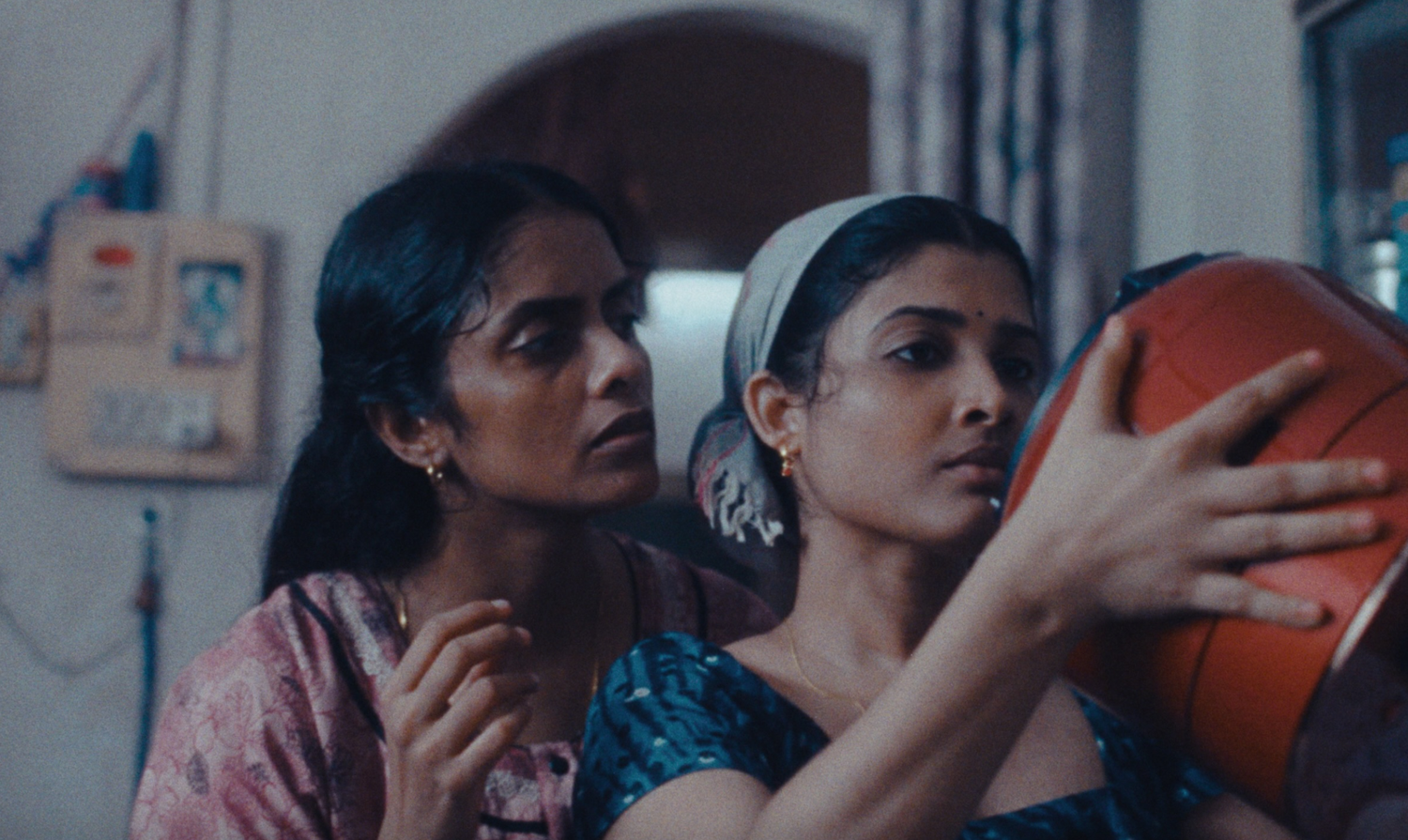
News
Summers Will Not Finish Semester of Teaching as Harvard Investigates Epstein Ties

News
Harvard College Students Report Favoring Divestment from Israel in HUA Survey

News
‘He Should Resign’: Harvard Undergrads Take Hard Line Against Summers Over Epstein Scandal

News
Harvard To Launch New Investigation Into Epstein’s Ties to Summers, Other University Affiliates

News
Harvard Students To Vote on Divestment From Israel in Inaugural HUA Election Survey
From Cannes: ‘All We Imagine As Light’ Illuminates Resilience in Love and Life
Dir. Payal Kapadia — 4.5 Stars

Payal Kapadia’s film “All We Imagine as Light” emerges as a stunning meditation on urban transformation and personal resilience against the backdrop of Mumbai’s relentless evolution. In her second feature, Kapadia — who previously garnered acclaim for her 2021 hybrid documentary “A Night of Knowing Nothing” — delves into a film that defies conventional categorization, blending poetic realism with a deep exploration of its characters’ lives.
The film follows three women — Prabha (Kani Kusruti), Anu (Divya Prabha), and Parvaty (Chhaya Kadam) — each navigating their own trials in a rapidly changing city. Mumbai is not merely a backdrop but an active, living entity that interacts with the characters and their struggles. Kapadia marks her portrayal of the city with an evocative use of light and shadow, capturing the dichotomy between its dazzling facade and the stark, harsh realities its inhabitants face.
Prabha is a nurse whose daily commute through the city is depicted with a poetic grace that contrasts well with her mundane reality. As she rides the train, the blurring lights of Mumbai mirror her internal state — caught between unfulfilled promises and the harshness of her everyday life. Her marriage to a husband working in Germany is fraught with uncertainty, adding to her sense of isolation. The film beautifully captures her quiet strength and the subtle ways in which she copes with her personal limbo.
In contrast, Anu represents a younger generation’s defiance of social norms and a desire for change. Her secret relationship with a Muslim boy, Shiaz (Hridu Haroon), introduces themes of interfaith romance and societal judgment. Anu’s spirited rebellion against traditional norms highlights the generational divide between her and Prabha, with their different approaches to life and love bringing both tension and tenderness to their interactions.
Parvaty’s storyline further enriches the film’s exploration of displacement. Facing eviction from her home due to the greed of ruthless property developers, Parvaty moves to a coastal village — an event that reveals another poignant dimension of the film’s narrative. The transition from Mumbai to the village underscores themes of loss and the search for belonging, particularly in a society that continuously reshapes itself at the expense of its most vulnerable.
Kapadia’s film stands out for its technical and emotional depth. Ranabir Das’s cinematography is lush and evocative, capturing Mumbai’s nocturnal beauty and the coastal village’s contrasting calm. Furthermore, Dhritiman Das’s score, with its delicate piano themes, complements the visual storytelling and infuses everyday moments with a sense of lyrical elegance.
Kusruti, Prabha, and Kadam’s performances are deeply affecting, each bringing a unique depth to the characters. Kusruti’s portrayal of Prabha’s quiet endurance and internal feelings of displacement, combined with Kadam’s powerful depiction of Parvaty’s struggle with societal pressures create a deeply moving, multifaceted portrait of resilience. Prabha’s Anu, with her youthful fervor and vulnerability, adds another layer of emotional complexity to the film.
The film’s title, “All We Imagine as Light,” reflects its central themes of hope and personal illumination amidst adversity. The light in the film is both literal and metaphorical, symbolizing the characters’ internal strength and their search for meaning in a world that often feels indifferent. The film ultimately suggests that the true light lies within the characters themselves and the bonds they form with one another, rather than in the city that surrounds them.
“All We Imagine as Light” is a remarkable film that seamlessly blends visual poetry with a profound exploration of personal and societal change. Kapadia’s ability to find beauty in the mundane and depth in her characters’ struggles makes this film a resonant and poignant reflection on the nature of light, both in the city and within ourselves.
—Staff writer J.J. Moore can be reached at jj.moore@thecrimson.com.
Want to keep up with breaking news? Subscribe to our email newsletter.
